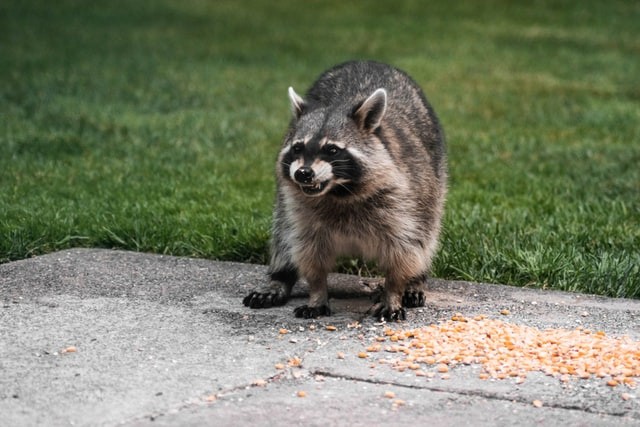
The world is full of incredible wildlife, but sometimes these creatures end up away from the "wild" and inside our backyard. While it certainly can be exciting at times, they can be very dangerous, so it's important that you follow the right steps to remove them safely.
In this article, we are going to take a look at eight animals you might find near your home and how you can get rid of them. Sound interesting? Then let's get started!
Snakes
In the US, there are around 21 species of venomous snakes, and since they are so hard to see, they are one animal you definitely don't want in your backyard. One bite can be fatal, so you want to do your best to make sure there are no hiding spots. Remove rubble, regularly trim your grass and ensure that your fences are secure. If you spot one, call your local animal control so they can remove it. You should never try and catch it yourself!
Mice
The appearance of mice is adorable, but they are actually one of the worst pests you can have in your home. Not only can they contaminate your food and surfaces with bacteria and diseases, but they can also chew away at your walls and wiring. To stop them from entering your yard, it's vital to block holes and trim excessive undergrowth. If you believe you have a large infestation, check out the link, how to get rid of mice for more information.
Lizards
Lizards are another popular animal that you may find in your backyard, but luckily they are pretty harmless. Usually, they can be found living under shrubs and debris, but if you're lucky, you may catch them basking in the sunshine. Since these creatures are so small, it's pretty much impossible to keep them out of your yard. However, using a pungent spray containing onion and garlic may work.
Raccoons
Raccoons may look cute and friendly, but they can actually be very vicious creatures and are known for carrying rabies. These little fluffballs are nocturnal and love all sorts of food, especially your cat and dog's kibble. In order to keep them out, try locking away your pet food. Some individuals have even recommended putting hot sauce repellent around the garden to stop them from digging.
Insects
Since there are so many different times of bugs and insects in the world (approximately 900 thousand to be exact), you can't really narrow down just one that will be found in your backyard. From bees, spiders, worms, beetles, and centipedes, there can be hundreds in your garden alone. There is absolutely no way to get rid of them all, but if you want to save your plants, you can create your own DIY organic pesticide that is safe and easy to make.
Foxes
While foxes are known for being rather sneaky, they have recently been turning up in people's backyards with the hope of finding food, whether it be left from your pet or in your garbage. They can be scared off quite easily with a loud noise, but it's important to remember that they are predators and have been known to eat small dogs and cats. If you've spotted them in your garden, make sure to keep your pets inside at night for extra precaution.
Rabbits
Rabbits are another adorable animal to find in your garden, but they can be considered a pest, and for a good reason. These fluffy bunnies can eat away at your entire garden, and once they start breeding, they never stop! While certain repellents can be used to deter them, if you can't get them under control, there are a few other options. Things like putting up a scarecrow, installing garden fencing, and even getting a dog have also been successful. It is possible to trap and relocate them, but this can be difficult, especially if you've got a mother and her babies running around.
Alligators
While alligators may not be floating around in every state, if you live in Florida, you are probably very familiar with them! These guys love turning up in people's backyards, pools, and on the golf course looking for a cool place to take a dip. If you spot an alligator, you must never approach it yourself, as they will bite! Call the police or your local animal control officer who is skilled at removing these dangerous animals.
© 2025 NatureWorldNews.com All rights reserved. Do not reproduce without permission.





